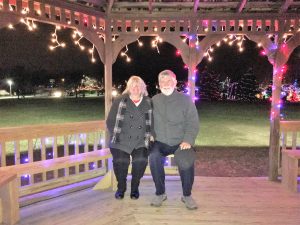Hasten, O God, to save me; come quickly, Lord, to help me (70:1 NIV).
This psalm is very similar to 40:13-17. There are just a few minor alterations. Compare the similarity between Psalms 14 and 53. Both Psalms 40 and 70 are ascribed to David, who probably took the last section of Psalm 40, modified it, and set it forth to God’s people as a brief prayer for help (cf. Mt 13:52). There is a time to repeat truth. In addition, my brothers and sisters, rejoice in the Lord. To write to you again about this is no trouble for me and is a safeguard for you (Philippians 3:1 CSB). In fact, there are times to highlight a part of former teaching and use it for a particular purpose.
Many evangelicals are accustomed to freestyle prayer, but we must remember that it is not superior to praying a set form of words. When I was young, I was taught that to repeat prayers was wrong, that it was something done only by people that called themselves Christians but weren’t. Many arguments were used for this that aren’t worth repeating. The attitude of the heart and faith is far more important than whether or not we are original. Jesus himself prayed the same words over again, and on at least two occasions gave the words of the Lord’s Prayer.
This psalm is characterized by a sense of urgency (70:1, 5). God knows that though he is eternal, we are bound by constraints of time. Here the Holy Spirit inspires words that plead for a quick answer from the Lord. Here the children urge God the Father to hurry! However, we should balance this by some other thoughts.
- We may need to wait humbly before God in order to gain understanding. Consider the experience of Daniel the prophet. In those days I, Daniel, was mourning for three full weeks. I didn’t eat any rich food, no meat or wine entered my mouth, and I didn’t put any oil on my body until the three weeks were over… “Don’t be afraid, Daniel,” he said to me, “for from the first day that you purposed to understand and to humble yourself before your God, your prayers were heard. I have come because of your prayers. But the prince of the kingdom of Persia opposed me for twenty-one days. Then Michael, one of the chief princes, came to help me after I had been left there with the kings of Persia” (Daniel 10:2-3, 12-13 CSB). Sometimes the laborious wait is God’s route to blessing.
- We may need to wait because God has other plans he is working out before he can bring about our desired answer. Think of Jesus delay when he heard that his friend Lazarus was sick. Now Jesus loved Martha and her sister and Lazarus. So, when he heard that Lazarus was ill, he stayed two days longer in the place where he was (John 11:5-6 ESV). Why did Jesus wait? He knew God’s plan to do a greater miraculous sign for the glory of God—the raising of Lazarus from the dead. God may not be doing something as dramatic in our lives, but we ought to trust his timing. I had someone complain to me a few times (yes, this happened more than once) that God always seemed to answer her prayers at “one minute to midnight”, and she didn’t like his way of doing that. We ought to rejoice whenever God answers! We are often unwise, impatient, even demanding children. Perhaps God simply sees the need to teach us patience and humility.
- We may wait expectantly because God can do his work swiftly. Arise, shine, for your light has come, and the glory of the Lord has risen upon you… Your sun shall no more go down, nor your moon withdraw itself; for the Lord will be your everlasting light, and your days of mourning shall be ended. Your people shall all be righteous; they shall possess the land forever, the branch of my planting, the work of my hands, that I might be glorified. The least one shall become a clan, and the smallest one a mighty nation; I am the Lord; in its time I will hasten it (Isaiah 60:1, 20-22 ESV).
David knew that he needed God to be involved in his life, so he asked God to save and to help. His example of faith shows us to abandon self-reliance. Quit trying to be the problem-solver in your life! Believers know that we need the Lord to lift us up and do what we are unable to do. Since the saint is alive to God, he understands that God is able to act in history and to carry out a rescue operation. Let us then approach God’s throne of grace with confidence, so that we may receive mercy and find grace to help us in our time of need (Hebrews 4:16 NIV).
Grace and peace, David

 Luke 1:5-10
Luke 1:5-10 Luke 1:5-10
Luke 1:5-10 1 Samuel 16:1-13
1 Samuel 16:1-13